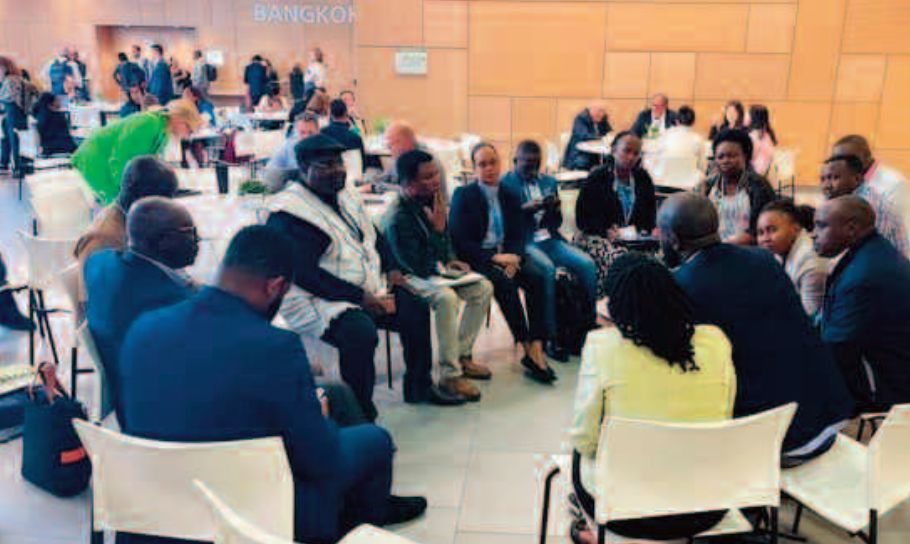That was in early june for technical discussions. By Clara Mbouh-source : Pacja
That was in early june for technical discussions. By Clara Mbouh-source : Pacja
2024 is the big climate finance year where countries will agree on a new global climate finance goal known as The New Collective Quantified Goal (NCQG). This goal will be a key marker for a successful outcome at the annual UN climate talks (COP29) in Baku Azerbaijan.
In 2009, at COP15 in Copenhagen, developed countries committed to a goal of mobilising USD 100 billion per year by 2020 for climate action in developing countries. At COP21 in Paris, countries agreed to set a new collective quantified goal before 2025, taking into account the needs and priorities of developing countries.
The NCQG aims to mobilise financing to support the climate needs and priorities for developing countries which include mitigation, adaptation, loss and damage and just transitions. It is also meant to provide clarity on the public funding available for developing countries to implement their next round of Nationally Determined Contributions (NDCs) and adaptation plans which are due by February 2025.
According to Ali Mohamed, African Group of Negotiators Chair:
« (…) SB60 is an opportunity to rebuild trust in the principle of common but differentiated responsibilities and respective capabilities. That trust can only be rebuilt if we come out of Bonn with a quantum that adequately covers the needs of the continent. The figure Africa is asking for from here as we head into COP29 is $1.3 trillion per year by 2030 ».
Evans Njewa, Chair of the Least Developed Countries Group said:
« (…) As we get into the second week where a lot of negotiation texts are likely to be concluded, we hope to agree that developed countries will provide climate financing that is based on science, is accessible and scaled up to meet the needs of developing countries. It is my hope that we will agree on shared commonalities that will produce a draft text that will give us positive decisions in Baku ».
Sven Harmeling, Head of Climate, Climate Action Network, Europe thinks that:
« (…) The scale definitely doesn’t match what is required. This year and in future climate financing debates, the EU must significantly increase the quality of financing and move away from non-grant instruments like loans, which have been 50% and step up in grants as these are particularly important for vulnerable countries to address the climate crisis ».
Imane Saidi, Diplomacy and cooperation researcher, Imal Initiative for Climate & Development declared:
« The NCQG consultations have been held hostage by debates over the reform of the contributor base and the relevance of Article 2.1c of the Paris Agreement. These issues are not only outside the mandate but also stall substantial discussions on defining the structure, timeframe, and quantum of the goal. A progressive NCQG text for Africa and other developing countries should move beyond these tactics and conditionalities set by developed country Parties, to avoid their historical responsibility and focus on the core mandate. It should emphasise genuine accountability from developed countries and prioritise the real needs of the developing world ».
Like
Dislike
Angry
Sad
Funny
Wow
Travaux scientifiques : comment améliorer l’utilisation des résultats coince
21/09/2024Plan d’occupation des sols : Arme contre l’accaparement des terres
30/03/2024Ce site nécessite l'autorisation de cookies pour fonctionner correctement.










Commentaires 0